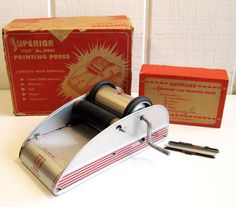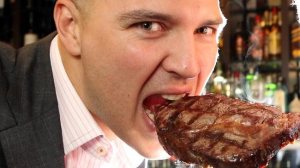Rich Man, Poor Man. Fake News, Real News.
As a young kid, I learned the price you have to pay for reporting the real news. Now I discover that you can get rich by making up fake news.
 My “journalism” career began early. My dad worked at the Omaha World-Herald in the accounting department. When I visited him on Saturday mornings, I managed to wander off into the exciting world of the newsroom. For me, it was intoxicating.
My “journalism” career began early. My dad worked at the Omaha World-Herald in the accounting department. When I visited him on Saturday mornings, I managed to wander off into the exciting world of the newsroom. For me, it was intoxicating.
When I was seven or eight, I launchd my own newspaper. It contained neighborhood news and paid ads from the local grocery store, which was more like a precursor of today’s convenience stores.
My first scoop hit home – literally. It was a story with ample detail about my mother’s surgery. When a neighbor called my recuperating mom to ask how she was doing, my scoop went, so to speak, viral.
Despite my status as publisher, editor-in-chief and lead investigative reporter, I was ordered to collect every edition containing my scoop. Luckily, the neighborhood grocer didn’t make me refund him for his ad. He gave me a free fudgesicle instead.
More than 50 years later, after slogging in the trenches of truth, I read about Jestin Coler, CEO of Disinfomedia. He makes his living generating fake news and raking in ad dollars for his trouble.
 Coler isn’t some slime ball working in a dank basement. He is a soft-spoken 40-year-old who lives with his wife and two kids in a California suburb, earning up to $30,000 a month. Coler says the fake news business is good.
Coler isn’t some slime ball working in a dank basement. He is a soft-spoken 40-year-old who lives with his wife and two kids in a California suburb, earning up to $30,000 a month. Coler says the fake news business is good.
A registered Democrat, Coler produces fake news for a far-right audience that wants to believe the sleaziest, juiciest and most salacious stories about those they despise, like Crooked Hillary Clinton. One of Coler’s fake stories, which earned more than 1.6 million views, “reported” the FBI agent who leaked information about Clinton’s emails was murdered.
“The people wanted to hear this,” Coler explained to NPR. “So all it took was to write that story. Everything about it was fictional: the town, the people, the sheriff, the FBI guy. And then … our social media guys kind of go out and do a little dropping it throughout Trump groups and Trump forums and boy it spread like wildfire.”
Coler said he isn’t the only fake news entrepreneur who targets Trump supporters with the news they are dying to read. Like any good journalist, Coler insists he doesn’t make up fake news for the money. He says it’s an exercise to show how easily fake news can spread when it is aimed at the right audience. (He tried to target a liberal audience, but they didn’t bite.)
 “It was just anybody with a blog can get on there and find a big, huge Facebook group of rabid Trump supporters just waiting to eat up this red meat that they’re about to get served,” Coler explained to NPR. “It caused an explosion in the number of sites. I mean, my gosh, the number of fake accounts on Facebook exploded during the Trump election.”
“It was just anybody with a blog can get on there and find a big, huge Facebook group of rabid Trump supporters just waiting to eat up this red meat that they’re about to get served,” Coler explained to NPR. “It caused an explosion in the number of sites. I mean, my gosh, the number of fake accounts on Facebook exploded during the Trump election.”
One of Coler’s fake news outlets has been booted off Google, but he says it doesn’t matter. “There are literally hundreds of ad networks. Early last week, my inbox was just filled every day with people because they knew that Google was cracking down – hundreds of people wanting to work with my sites.”
Gullibility attracts flies.
The advantages of fake news over real news are clear. Real news requires attending meetings, talking to sources and trying to piece together the relevant facts into an intelligible story. Fake news only requires a vivid imagination. A real newsroom costs a lot of money, which is why they are shrinking. A fake newsroom is a big moneymaker, which is why they are flourishing.
I think back to all those hours I spent wandering my old neighborhood in search of real-life events to report on my hand-set, hand-cranked printing press. It would have been so much easier to make up stuff about those neighbors down the street who always kept their blinds shut and didn’t have any candy on Halloween.
Too bad I spent time admiring journalists working the phones and pounding their manual typewriter keys, seeing the copy boys carry the “news” to the desk for editing and, later, watching in amazement as the giant writing press churned out the day’s edition. People counted on that paper landing on their front stoop to find what was happening. I saw myself as someone who they would depend on to tell the stories they needed to read. I’ve tried in my career to stay true to that early conviction of finding and reporting the facts.
It never occurred to me then, and it seems foreign to me now, that people could violate that trust by just making up red-meat “news” that people would eat up because it reinforced their beliefs, not informed their opinions.
 Apparently I could have been a lot richer by making the people around me a lot poorer. And I didn’t even have to wear a mask.
Apparently I could have been a lot richer by making the people around me a lot poorer. And I didn’t even have to wear a mask.
Information
This entry was posted on November 28, 2016 by Gary Conkling in Gary Conkling, Politicians, Words and Language and tagged Disinfomedia, Donald Trump, Facebook, Fake news. Real news, Google, Gullible readers, Hillary Clinton, Jestin Coler, Journalism, Murdered FBI agent, NPR, Omaha World-Herald, Red meat, Shrinking newsrooms, social media, Trump forums, Viral stories.Shortlink
https://wp.me/p3vuOO-2h6Recent Posts
Archives
- April 2024
- March 2024
- January 2024
- December 2023
- October 2023
- September 2023
- August 2023
- March 2023
- February 2023
- December 2022
- October 2022
- July 2022
- June 2022
- May 2022
- April 2022
- March 2022
- February 2022
- December 2021
- September 2021
- July 2021
- June 2021
- May 2021
- December 2020
- September 2020
- August 2020
- July 2020
- June 2020
- May 2020
- April 2020
- March 2020
- February 2020
- January 2020
- December 2019
- November 2019
- October 2019
- September 2019
- August 2019
- July 2019
- June 2019
- March 2019
- January 2019
- December 2018
- October 2018
- September 2018
- August 2018
- July 2018
- June 2018
- April 2018
- March 2018
- February 2018
- January 2018
- December 2017
- November 2017
- October 2017
- September 2017
- August 2017
- July 2017
- May 2017
- April 2017
- March 2017
- February 2017
- January 2017
- December 2016
- November 2016
- October 2016
- September 2016
- August 2016
- July 2016
- June 2016
- May 2016
- April 2016
- March 2016
- February 2016
- January 2016
- December 2015
- November 2015
- October 2015
- September 2015
- August 2015
- July 2015
- June 2015
- May 2015
- April 2015
- March 2015
- February 2015
- January 2015
- December 2014
- November 2014
- October 2014
- September 2014
- August 2014
- July 2014
- June 2014
- May 2014
- April 2014
- March 2014
- February 2014
- January 2014
- December 2013
- November 2013
- October 2013
- September 2013
- August 2013
- July 2013
- June 2013
- May 2013
- April 2013
- March 2013
- February 2013
- January 2013
- November 2012
- October 2012
- September 2012
- July 2012
- June 2012

Recent Comments